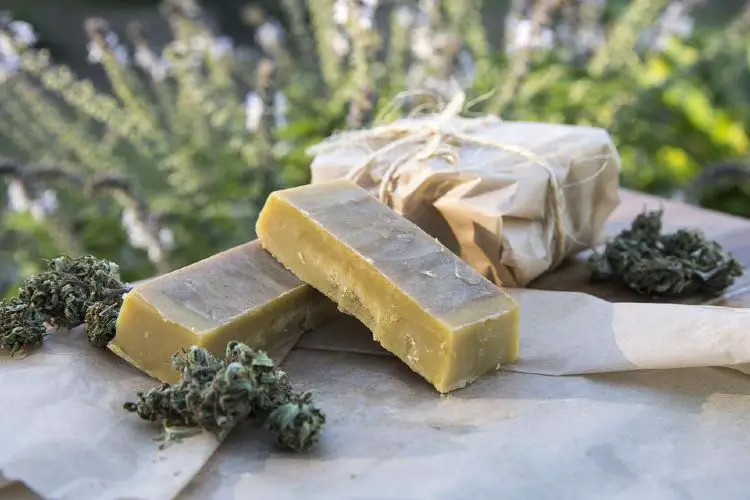Hints and Tips for Finding The Right Cookery School
They are springing up everywhere. In cities, towns, villages and rural areas all over Great Britain, every day a new cookery school is born. Fuelled by the recessionary zeitgeist of home making, home growing and home cooking, courses can now be bought for bread making, cheese making, pastry making, butchery and even hedgerow drinks making. You can learn the ins and outs of French, Indian, Spanish, Italian and Thai gastronomy. Ever fancied making your own sushi, designing your own wedding cake or crystallising the contents of your flower garden? Well there is a course, or ten, for you.
The cookery school industry is shamefully unregulated, and the last few years have seen a great proliferation of sub-standard cookery schools setting up. Many are driven by amateurs who are woefully inexperienced in both the technical, people, culinary and business skills required to prepare, structure and deliver the kind of professional cookery teaching that this country needs.
The Foodie Bugle Reporters should know. Collectively, we have purchased many cookery courses over several decades, in many different countries, and have witnessed the good, the bad and the ugly in this burgeoning industry.
Before we proceeed any further, we will need to divulge to you a summary of the contents of an e-mail received from the estimable editor of this delightful online magazine. In it she reminded us that The Foodie Bugle exists to celebrate and promote skill and talent, and there are plenty of other websites that exist purely to criticise, judge and create hostility. We are not one of them.
So, as contributing writers we are permitted to state our case in a balanced, well-thought out argument, to encourage debate and promote awareness amongst consumers. But there is to be no naming and shaming, just so you know.
We believe that, as the educational system in Britain has entirely abandoned, at its own peril, any form of food, farming and artisanal instruction for its tax paying populace, it is up to the private sector to singularly step up to meet the needs of those who want education in these areas.
Look online and you will be staggered by how many cookery schools there are. Many promise cookery tuition from “Michelin starred chefs”, “award winning international cookery writers” and “state of the art kitchens”. There is no checking system that requires validification of such claims, nor your money back if they are not met.
In certain rural areas a few housewives or estate owners have looked out of their farmhouse or manor kitchen windows and seen a group of derelict farm outbuildings on their land. The thought, and the cash register, pings into their head:
“I know, let’s create a cookery school! We are positioned in a good catchment area, lots of transport connections to affluent market towns, maybe even a motorway linking us with London.”
Hey presto, a business plan is hatched, a bank or supportive bankroller is found, and before you know it the idea has wings.
But it does not stop there, as certain enterprises promise paying customers that everything will be “organic, home grown, locally produced and of the highest provenance”, even if the local shopping is done in Tesco the night before.
On average a cookery course will set you back between £125 to around £400 a day, depending on where you go. The terms and conditions of your purchase can be vague to say the least. Many websites offer as little information as humanly possible with regards to the experience and career background of the tutor, the provenance of the suppliers, the actual food to be demonstrated or cooked and the general timeline of the day. Some do not even mention the Menu.
We arrived at one cookery course at 9.45 a.m., having driven 2 hours to get there. The course was scheduled to start at 10 am and we were given coffee in the school shop, obviously so that we would be incentivised to spend money. By 10.30 a.m. we were still waiting. The course tutor arrived, stressed and unprepared, a household name and obviously very busy in a mercurial media career that knows no bounds. Every other half hour there was a coffee break (served in the shop), the recipes were really far too simple to be labelled as such and our tutor spent most of the course texting, checking the mobile phone and being whispered to by a haughty assistant. By 2.30 p.m. it was all over: a quick lunch and coffee and we were dispatched. Total cost: £175 per head.
It is very evident when you arrive at a cookery school which is run by an entrepreneurial owner who clearly has a great deal of interest in the bottom line but no interest or background in cooking. The things that really matter are relegated to the low budget end of the spectrum. So you spend the entire cookery course trying to make lunch with cheap knives, flimsy pots and pans, bargain basement peelers, cutters and baking trays. Eastern European staff, low in number and high in exhaustion, will be furiously washing, wiping and clearing, but you will feel compelled to help as the chaos mounts.
Yet this sort of cookery school will have their name emblazoned in big lettering, they will have a very expensive website, stationery, brochures, designer monogrammed aprons and very impressive champagne and wine fridges, or maybe even one of those oven doors that flick open and shut with the touch of a button. Music will play in the background, no doubt, as you are left, alone, on your vast workbench trying to work out what you are supposed to be doing.
We have been to cookery schools that have underfloor heating and seen boxes of fish left on the floor for the duration by the supplier. We have seen dirty tea towels, dirty loos, dirty shelves and dirty fridges.
As recessionary pressures impinge ever further on the disposable incomes of even the most fortunate consumers, we believe a flight to quality will ensue. We will all be buying fewer ingredients, fewer kitchen gadgets and fewer cookery courses but we will be seeking those better in quality and safer in provenance. Value for money is key. Some cookery schools offer truly outstanding courses, where you will learn great skills, meet friendly tutors and eat delicious food that you will be able to make at home for friends and family. They are rare jewels, and we aim to showcase them on this website.
When booking a children’s cookery course it is even more important to be vigilant, as some cookery schools evidently view this as a good way of using the children to get the parents to book courses. As children’s cookery classes normally cost far less than adult clasess, in the region of £30-£40, you may find that the tutor is actually the pot washer of the adult courses. Find out what skills will be passed on: knife skills, paring, slicing, filletting, de-boning, piping etc. Find out how many assistants will be in the room, as one tutor to ten or even fifteen children is really too low a ratio of teacher : pupils in case there is an accident.
As always, in The Foodie Bugle, we try to help food and drink consumers through the maze, and so we have come up with our top ten tips for knowing which cookery course to choose. And always remember, if you do find a cookery school that is genuinely good and offers excellent tuition, then support them as much as you can. Tell your foodie friends, write an article for The Foodie Bugle, Tweet their merits and ensure they survive and prosper.
Top ten tips for choosing a cookery school
- There is no better reference point in life than word of mouth. If a foodie friend or family member heartily recommends a cookery school to you then that is the best start.
- Always check social media and Blogs. Independent bloggers and Twitter chatter often reveal customer satisfaction. If several people are very enthusiastic about a school, then that is a good lead. Google the name of the cookery school and see what opinions come up.
- Check the website very carefully and do not be scared to ask questions by e-mail or phone. What is the CV of the tutor? How much of the course is hands-on and how much is demonstration only? Do you take any of the food away, or do you eat it all there? What level of cookery experience will be expected of students beforehand?
- Go to the opening. If a new cookery school opens in your area, go to the opening day or evening and ask lots of questions. Meet the staff: it is very evident, very quickly if they are knowledgeable and experienced. Consider with care the equipment, the layout, the structure and the general demeanour of the tutors.
- Do not be fooled by high tech. Just because a cookery school is well equipped with big brand name sponsors it does not mean automatically that the courses are good.
- Make sure that the person teaching you curry cookery is Indian, that the tapas and paella teacher is Spanish and that the pasta teacher is Italian. If they are not natives, then it is important they have had a long and strong bond with the region, either through travel, research, writing, catering employment or marriage. There really is nothing like the real geographic deal.
- If the cost charged is very high, investigate exactly what you are getting for your money. Is the school inside a very beautiful hotel, with rolling kitchen gardens, Michelin starred chefs and fresh, raw ingredients like no other? Is the cookery course very long, say from 9 am – 5 pm?
- Check the magazines carefully. Many lifestyle magazines cover cookery schools, but much of the editorial can be extremely sycophantic. Take a good look at the photographs and the descriptions and read between the lines. A confident, well qualified and experienced chef or owner shines through in an article. Caveat emptor.
- Be reasonable. You cannot expect a cookery school in an urban area to have a huge classroom, masses of parking, an acre kitchen garden and a separate dining room. You may well need to pay more, however, as the cost of staff, rents and rates are definitely higher than rural areas.
- Make the most of it. When the course starts, even if it is not exactly how you envisaged it, make sure you get the most out of your day. Ask questions, watch and listen carefully, make notes, swap ideas with the students and keep contact numbers. You are all in it together, and you will be surprised how many foodie friendships are made at cookery schools. These are almost as important as the courses themselves.


